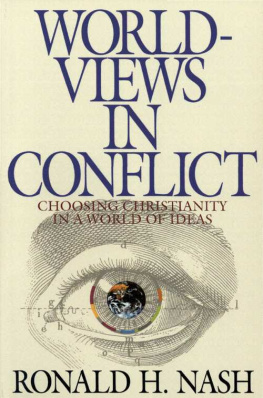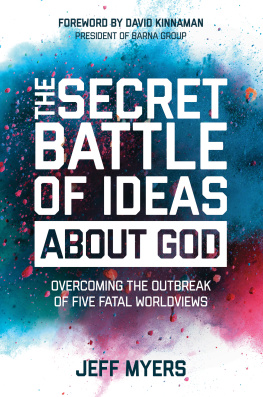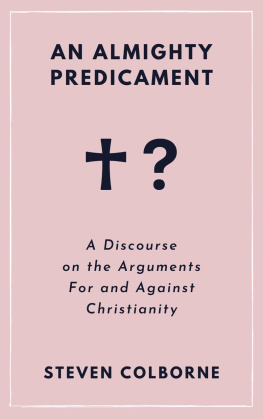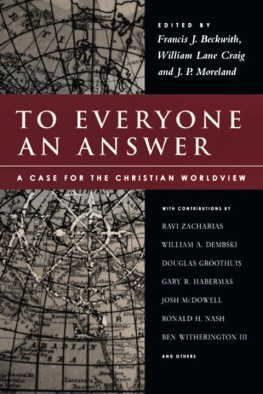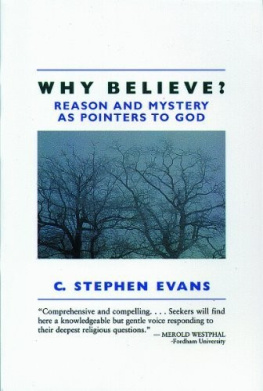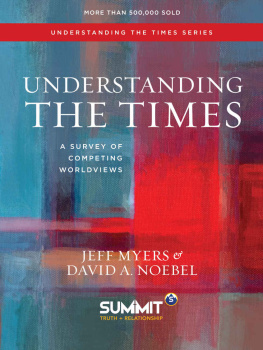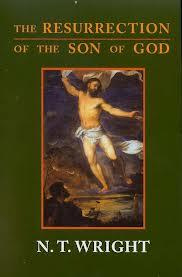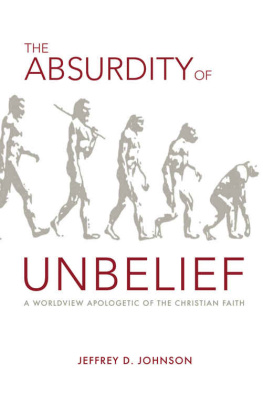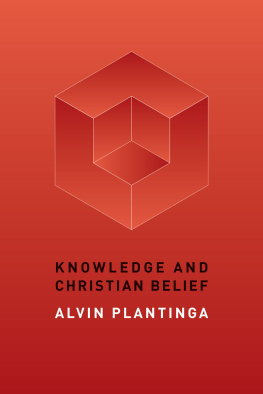Ronald H. Nash
A s I passed the security guard and left the entrance of my Moscow hotel, I saw the bus that would shortly take me and the group of which I was a part to my first lecture in the Soviet Union. It was May 1991just a few weeks before the abortive coup that unintentionally hastened the end of Soviet Communism. I was in Moscow as part of a team that had been invited by the Russian Ministry of Education to speak to hundreds of school teachers. None of us quite knew what to expect from the officials who escorted us nor, for that matter, from our audience.
It was a tremendous opportunity. In fact, as I approached the bus and our escorts, I could not help but think that everything else I had done up to this point in my life was preparation for this day. The decades of study and teaching, the degrees, the writing and publishingall of it was like training in the minor leagues. I felt like the rookie who comes to bat for the first time in the majors.
My task was to help ground my audience of university graduates in information that would help them explain the Christian faith to their students. That we were doing this at the invitation of and with the assistance of Russian governmental officials still astounds me. Since my participation was limited to two presentations, I was forced to ask myself how I could do the most good in such a short time frame. Other speakers would be discussing important facets of Christian belief. I decided that I could not do anything more important than to explain what we mean by the Christian worldview, and to contrast that with alien beliefs that have been so central to education in the Soviet Union since the communist takeover in 1917.
Those few days in Moscow were unforgettable. My efforts to contrast the biblical worldview with the atheism, materialism, naturalism, and relativism with which generations of Soviets had been indoctrinated did more than help those in my audience see a new way of approaching and understanding the world. For many of them it was a worldview they now wanted for their own.
It is sadly ironic that the basic features of the naturalistic worldview, which so many people in the formerly Marxist nations are now rejecting, remain attractive to great numbers of educated people in the West. One major reason for this, I am convinced, is that few Americans have been taught to think in terms of worldviews. They do not know what a worldview is; they could not spell out the content of their own worldview if their lives depended on it; they are unaware of how various aspects of conflicting worldviews clash logically.
Basically, what I attempt in this book is to communicate the same message I gave my audiences in the Soviet Union. Raising ones level of self-consciousness about worldviews is an essential part of intellectual maturity. But I also want the reader to acquire a clearer understanding of the content of the Christian worldview. Following that, I offer brief accounts of the two worldviews that in the United States are the major challengers to the Christian perspective. One of those competitors is called naturalism. As we will see, naturalism resonates with important elements of the old Marxist worldview. In fact, Marxism has been one of the dominant expressions of naturalism in the twentieth century.
The other competing worldview I examine is the socalled New Age Movement, which continues to gain large numbers of followers. In most respects, New Age thinking contradicts naturalism, and is antithetic to almost everything that informed, biblically sound Christians believe. It is also worth noting that as the people of the Soviet Union turn away from Marxism, New Age beliefs are filling up the resulting worldview vacuum.
I had originally thought of titling this book Winning the Battle in the World of Ideas. There was no intent on my part to suggest any note of triumphalism in these words. By no means was I suggesting that the battle had been won or that victory was just around the next comer. Active, thinking Christians are involved in battles every day of their lives. While it is understandable that most Christians tend to think of this battle in its moral and spiritual dimensions, here I deal with the intellectual side of the conflict. This is a fight we do not want to lose ; hence, my concern to provide a blueprint for how we might do a better job to prepare ourselves to perform effectively in the world of ideas.
The idea for this book originated with the manager of a bookstore in Boise, Idaho. This man and some of his friends in a study group had found a number of my earlier writings helpful as they wrestled with several important issues. He suggested that I consider adapting some of these writings to a more popular audience. This book is a response to his good idea.
I have written, therefore, with the needs and interests of the general reader in mind. But I have also designed the book to be useful as a supplementary textbook in college and seminary courses where an introduction to worldview thinking is presented. While I have tried my best to make the arguments of the book accessible to as many readers as possible, I have had difficulty reaching this goal in a few spots where issues are unusually complex. Simplifying is one thing; oversimplifying is another. The toughest part here is chapter five. There I deal with two knotty challenges to the Christian faith, namely, the claims that the faith is logically contradictory because of its insistence that Jesus Christ is fully God and fully man plus the additional assertion that the existence of evil in the world is logically incompatible with the nature of the Christian God. There is no way to deal with these challenges that is, at the same time, both simple and responsible. My advice to the reader, therefore, is not to get bogged down in this chapter. Then, after completing the book, return to chapter five and work through the material or simply remember where those arguments are if they are ever needed. One can live a rich, full, and happy life without understanding every single point in chapter five.
Most of the Christians I know love challenges of one kind or another. They may take up jogging and strive to run a certain distance in a specific time, or they may try to shoot a round of golf under eighty, or climb a mountain. Or, to mention one of lifes greatest feats, they may decide to raise a family.
To me, it is a great mystery why so many people who respond heroically to other challenges shun those so abundant in the world of ideas. While many of us push our bodies to the limit, any unnecessary use of our minds is treated with the same disdain we gave, when children, to eating spinach or broccoli. I would like to think that this book will somehow end up in the hands of thousands of men and women who will begin to exercise their minds, who will become mentally alert and prepared, who will become more conscious of the battle in the world of ideas, and who will be equipped to begin winning that battle.
Most Christians are familiar with these words from Paul:
[B]e strong in the Lord and in his mighty power. Put on the full armor of God so that you can take your stand against the devils schemes. For our struggle is not against flesh and blood, but against the rulers, against the authorities, against the powers of this dark world and against the spiritual forces of evil in the heavenly realms. Therefore put on the full armor of God, so that when the day of evil comes, you may be able to stand your ground (Eph. 6:1013)
Despite the familiarity of this passage, many of us fail to understand the full range of Pauls thoughts. We know that he goes on to enumerate various elements of the Christians armor, such as the breastplate of righteousness and the shield of faith and the helmet of salvation. But we frequently fail to relate all this armor to a basic question: why would anyone need defensive armor like this along with the one offensive weapon mentioned in the text, the sword of the Spirit, which is the Word of God? The answer is simply this: Christians need armor because they are combatants in a war.

